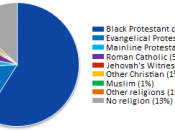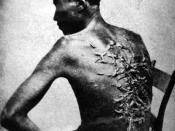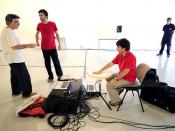In Exchanging Our Country Marks, Michael Gomez brings together various strands of the historical record in a stunning fusion that points the way to a definitive history of American Slavery. In this fusion of history, anthropology, and sociology, Gomez has made expert use of primary sources, including newspapers ads for runaway slaves in colonial America. Slave runaway accounts from newspapers are combined with personal diaries, church records, and former slave narratives to provide a firsthand account of the African and African-American experiences during the eighteenth to the mid-nineteenth centuries. With this mastery of sources, Gomez challenges many of the prevailing assumptions about slavery-- for example, that "the new condition of slavery superseded all others" (48)-- and he advances intriguing new speculations about the development of a collective African-American identity. In Gomez's words: "It is a study of their efforts to move from ethnicity to race as a basis for such an identity, a movement best understood when the impact of both internal and external forces upon social relations within this community is examined"(4).
According to Gomez this identity emerged out of a mixture of African identities. Throughout his study Gomez illustrates how Africans transferred their unique culture and heritage to the New World. He uncovers the harshness of the Middle Passage, and describes how some enslaved Africans attempted suicide, some successfully. Africans did not embrace the institution of slavery, and many chose to run away. The millions of Africans brought to America would not have thought of themselves as African; they were Asante, Yoruba, or Igbo, their lives and characters defined by village or nation. Gomez devoted a chapter to Muslims that had a religious identity connecting them to Arabia and Palestine rather than their native land. The Muslims brought with them a different idea about themselves and their world.


